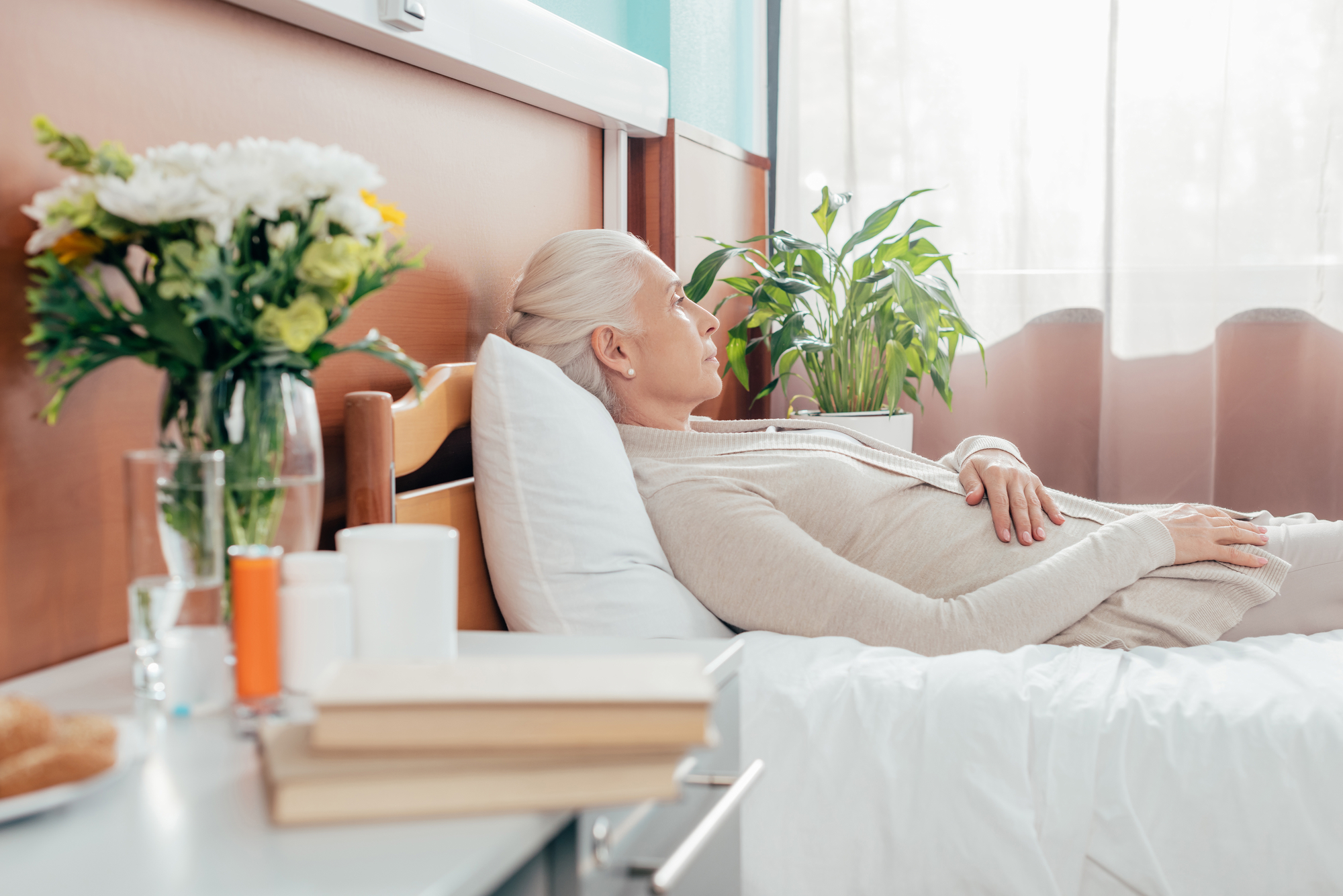Bedsores in Nursing Homes: Causes & Prevention

Bedsores in Nursing Homes
Sometimes families must depend on the help of a nursing home or caregiving facility to care for an elderly loved one. Unfortunately, bedsores are a common occurrence in nursing homes all across the country, and they can point to neglect within the facility. In a 2016 study, nursing home patient records indicated that 26% of patients had suffered from bedsores.
Bedsores, also called pressure ulcers, can occur when the patient is immobilized or bedridden. They are a lesion on the skin and can develop quickly if the patient is not moved or turned often. If your loved one is suffering from severe bed sores or the care facility is unaware of the bedsores, you may have grounds for a lawsuit.
Causes of Nursing Home Bedsores
Bedsores are caused by pressure on the skin for a period of time. The pressure on the skin can cause a lack of blood flow in the area which makes the skin vulnerable.
The most common causes of nursing home bedsores include:
- Limited mobility
- Friction from clothes or bedlinen
- Not being moved or shifted often enough
- Wet or moist skin
- Poor nutrition
- Dehydration
- Other medical conditions that may restrict blood flow
Untreated bed sores can cause severe complications that may result in bone and joint infections, cellulitis or even cancer.
Prevention of Bedsores
With proper care and monitoring, bedsores in the nursing home can be prevented. If a loved one may be at risk of developing bedsores, you should take the following precautions:
-
Ask the facility what their plan is for avoiding bedsores.
The doctors or nurses should have a process or plan in place for the prevention or treatment of bedsores in their early stages. If the nursing home does not exhibit knowledge of an action plan, you should take note of this medical negligence.
-
Be aware of possible warning signs of bedsores.
If you notice a bedsore in the early stages, you can help with preventing further reaction. Red, painful skin in areas where the skin covers the bone can be a sign of a pressure ulcer forming. These are most commonly located on the elbows, hips, heels, ankles and back of head.
-
Check for bed sores often.
When you visit, you should be sure to check on the condition of your loved one, including a physical inspection for bedsores. If you cannot visit often, you should ask your loved one via phone for updates on their condition..
-
Be involved in your loved one’s care.
Make the nursing home aware that you want to be notified of any changes in your loved one’s condition. The more involved in their care your are, the more likely that the nursing home staff will follow suit.
Bedsores Treatment
There are different stages of bedsores. Catching them early can help prevent infection or other serious risks that can result from bedsores. Treatment depends on the stage that the bedsores are in. If a facility allows a patient to develop bedsores without doing anything to prevent them, the patient or the family of the patient should consider filing a nursing home abuse lawsuit.
Stage I: Skin appears red, slightly painful. A sore has not formed yet.
Stage II: An open sore is visible and the skin appears irritated.
Stage III: The sore becomes cratered with damaged tissue.
Stage IV: The sore deepens resulting in damage to the muscle and bone.
Bedsore Treatment includes:
- Washing the area regularly
- Cleaning the wound with saline
- Changing positions often
- Using cushions or pillows to alleviate pressure
- Keeping the sore covered so it can heal
Nursing Home Bedsores Legal Actions
Bedsores can be prevented with the aid of attentive health care professionals. Nursing home residents that do not receive the proper attention and care can develop bedsores which may qualify the patient and their family to file a nursing home abuse lawsuit.
If your family member is suffering from bedsores or other signs of nursing home abuse, the nursing home may be held accountable for the physical, financial and emotional damage done to the patient.
If you are seeking aid with regard to nursing home abuse, Danksy | Katz | Ringold has extensive experience. We have offices in the New Jersey and Philadelphia areas. Feel free to reach out or call us directly at 800-609-7577 for a free consultation regarding nursing home abuse and bedsore related cases.